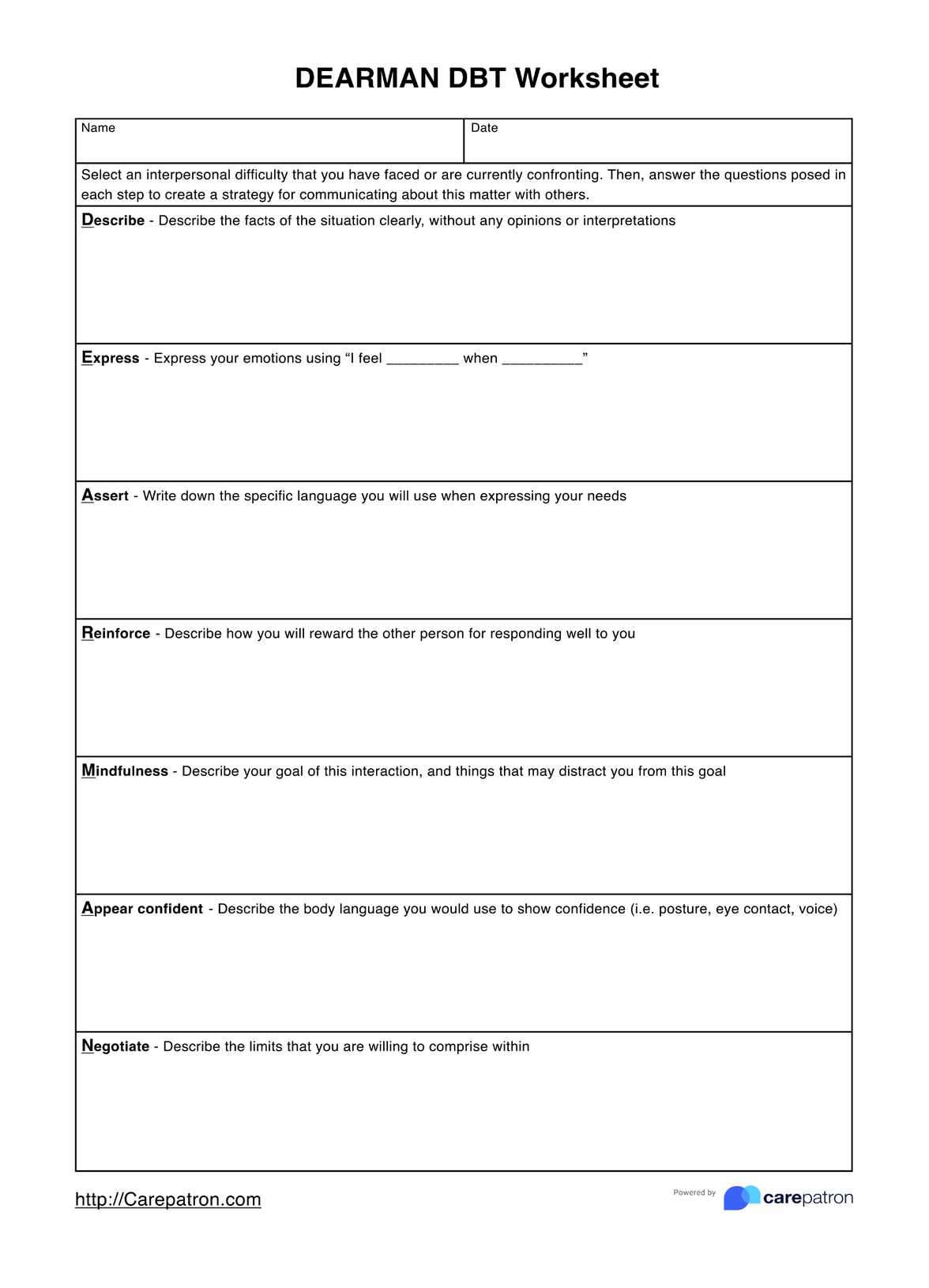Dialectical Behavior Therapy (DBT) is a type of cognitive-behavioral therapy that focuses on teaching individuals skills for managing emotions, developing healthy relationships, and improving overall quality of life. DBT has been shown to be effective in treating a variety of mental health conditions, including borderline personality disorder, depression, anxiety, and substance abuse.
One of the key components of DBT is the use of worksheets to help individuals practice and apply the skills they learn in therapy to real-life situations. These worksheets can be a valuable tool for both therapists and clients in the treatment process.
Free DBT Worksheets
There are many resources available online that offer free DBT worksheets for individuals to use on their own or in conjunction with therapy. These worksheets cover a range of topics, including mindfulness, emotion regulation, distress tolerance, and interpersonal effectiveness.
One popular resource for free DBT worksheets is DBT Self-Help, which offers a variety of printable worksheets that individuals can use to practice the skills they learn in DBT therapy. These worksheets are designed to be easy to understand and use, making them accessible to individuals of all ages and backgrounds.
In addition to DBT Self-Help, there are many other websites and resources that offer free DBT worksheets for individuals looking to improve their mental health and well-being. These worksheets can be a helpful supplement to therapy or a useful tool for individuals who are unable to access traditional therapy services.
By incorporating free DBT worksheets into their daily routine, individuals can develop the skills needed to effectively manage their emotions, improve their relationships, and cope with life’s challenges. These worksheets can be a valuable resource for anyone looking to enhance their mental health and overall quality of life.
Overall, free DBT worksheets are a valuable resource for individuals seeking to improve their mental health and well-being. By practicing the skills outlined in these worksheets, individuals can develop the tools needed to effectively manage their emotions, improve their relationships, and cope with life’s challenges.
